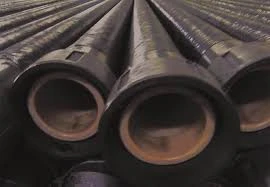
-
 Afrikaans
Afrikaans -
 Albanian
Albanian -
 Amharic
Amharic -
 Arabic
Arabic -
 Armenian
Armenian -
 Azerbaijani
Azerbaijani -
 Basque
Basque -
 Belarusian
Belarusian -
 Bengali
Bengali -
 Bosnian
Bosnian -
 Bulgarian
Bulgarian -
 Catalan
Catalan -
 Cebuano
Cebuano -
 China
China -
 China (Taiwan)
China (Taiwan) -
 Corsican
Corsican -
 Croatian
Croatian -
 Czech
Czech -
 Danish
Danish -
 Dutch
Dutch -
 English
English -
 Esperanto
Esperanto -
 Estonian
Estonian -
 Finnish
Finnish -
 French
French -
 Frisian
Frisian -
 Galician
Galician -
 Georgian
Georgian -
 German
German -
 Greek
Greek -
 Gujarati
Gujarati -
 Haitian Creole
Haitian Creole -
 hausa
hausa -
 hawaiian
hawaiian -
 Hebrew
Hebrew -
 Hindi
Hindi -
 Miao
Miao -
 Hungarian
Hungarian -
 Icelandic
Icelandic -
 igbo
igbo -
 Indonesian
Indonesian -
 irish
irish -
 Italian
Italian -
 Japanese
Japanese -
 Javanese
Javanese -
 Kannada
Kannada -
 kazakh
kazakh -
 Khmer
Khmer -
 Rwandese
Rwandese -
 Korean
Korean -
 Kurdish
Kurdish -
 Kyrgyz
Kyrgyz -
 Lao
Lao -
 Latin
Latin -
 Latvian
Latvian -
 Lithuanian
Lithuanian -
 Luxembourgish
Luxembourgish -
 Macedonian
Macedonian -
 Malgashi
Malgashi -
 Malay
Malay -
 Malayalam
Malayalam -
 Maltese
Maltese -
 Maori
Maori -
 Marathi
Marathi -
 Mongolian
Mongolian -
 Myanmar
Myanmar -
 Nepali
Nepali -
 Norwegian
Norwegian -
 Norwegian
Norwegian -
 Occitan
Occitan -
 Pashto
Pashto -
 Persian
Persian -
 Polish
Polish -
 Portuguese
Portuguese -
 Punjabi
Punjabi -
 Romanian
Romanian -
 Russian
Russian -
 Samoan
Samoan -
 Scottish Gaelic
Scottish Gaelic -
 Serbian
Serbian -
 Sesotho
Sesotho -
 Shona
Shona -
 Sindhi
Sindhi -
 Sinhala
Sinhala -
 Slovak
Slovak -
 Slovenian
Slovenian -
 Somali
Somali -
 Spanish
Spanish -
 Sundanese
Sundanese -
 Swahili
Swahili -
 Swedish
Swedish -
 Tagalog
Tagalog -
 Tajik
Tajik -
 Tamil
Tamil -
 Tatar
Tatar -
 Telugu
Telugu -
 Thai
Thai -
 Turkish
Turkish -
 Turkmen
Turkmen -
 Ukrainian
Ukrainian -
 Urdu
Urdu -
 Uighur
Uighur -
 Uzbek
Uzbek -
 Vietnamese
Vietnamese -
 Welsh
Welsh -
 Bantu
Bantu -
 Yiddish
Yiddish -
 Yoruba
Yoruba -
 Zulu
Zulu
fiberglass food grade equipment a closer look at its features and ...
Fiberglass Food Grade Equipment A Closer Look at Its Features and Benefits
In the world of food processing and handling, the choice of materials used for equipment is crucial for ensuring safety, efficiency, and durability. One material that has gained significant traction in recent years is fiberglass, particularly fiberglass food grade equipment. This equipment has become a popular choice due to its unique combination of features that make it suitable for various applications within the food industry. In this article, we will delve into the characteristics and advantages of fiberglass food grade equipment.
1. Safety and Compliance
One of the primary concerns in the food industry is ensuring that all equipment complies with safety regulations and standards. Fiberglass food grade equipment is specifically designed to meet stringent safety requirements set forth by health authorities. It is made from materials that are non-toxic and resistant to chemicals, ensuring that there is no leaching of harmful substances into food products. This compliance not only protects consumer health but also helps businesses avoid legal complications and penalties.
2. Durability and Longevity
Durability is another standout feature of fiberglass equipment. Unlike metal, which can corrode and degrade over time due to exposure to moisture and various chemicals, fiberglass exhibits exceptional resistance to such conditions. This resistance translates to a longer lifespan for equipment, minimizing the need for frequent replacements and repairs. For food manufacturers and processors, the reduced maintenance costs and downtime can significantly enhance operational efficiency and profitability.
Fiberglass is much lighter than many traditional materials, such as stainless steel or aluminum. This lightweight nature makes fiberglass equipment easier to handle and install, reducing labor costs and improving workflow efficiency. Additionally, fiberglass can be molded into various shapes and sizes, lending itself to a wide range of applications. Whether it’s tanks, trays, or containers, fiberglass can be customized to meet specific operational needs, providing versatility that is often unmatched by other materials.
fiberglass food grade equipment a closer look at its features and ...

4. Easy to Clean and Maintain
Maintaining high hygiene standards in food processing is paramount, and fiberglass food grade equipment is designed with this in mind. The smooth surfaces of fiberglass make it easy to clean and sanitize, reducing the risk of contamination. Many fiberglass products are also resistant to stains and odors, which further simplifies maintenance. This ease of cleaning ensures that food manufacturers can uphold hygiene standards without compromising on efficiency.
5. Cost-Effectiveness
While the initial investment in fiberglass food grade equipment may be higher than some alternatives, the long-term cost savings often make it a more economical choice. The durability and low maintenance requirements lead to lower total cost of ownership. Businesses can save significantly on repairs and replacements, making fiberglass a cost-effective option in the long run.
6. Environmental Benefits
As sustainability becomes increasingly important in all industries, including food processing, fiberglass food grade equipment can contribute positively to this effort. The longevity of fiberglass means less waste generated from frequent replacements. Furthermore, many manufacturers are adopting eco-friendly practices, including recycling fiberglass materials, which helps reduce the environmental footprint of production processes.
Conclusion
In summary, fiberglass food grade equipment offers a multitude of benefits that make it an ideal choice for the food processing and handling industry. With its compliance to safety regulations, durability, lightweight nature, ease of maintenance, cost-effectiveness, and environmental advantages, it stands out as a reliable solution for businesses aiming to enhance their operational efficiency while ensuring consumer safety. As the industry continues to evolve, embracing advanced materials like fiberglass will be essential for meeting new challenges and requirements in food safety and processing.









